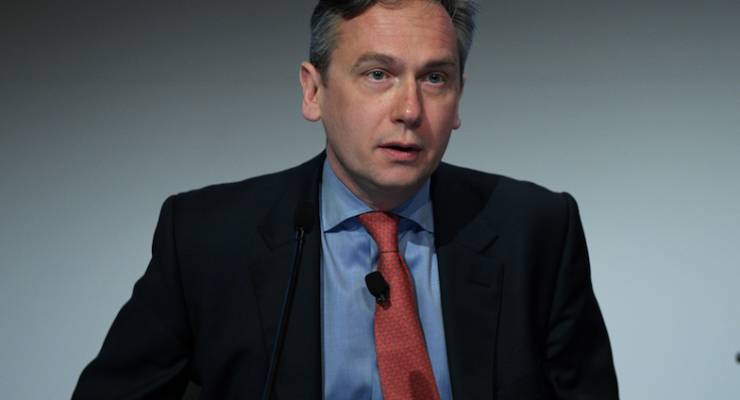
When a crisis-riddled Rio Tinto dumped its CEO and two senior executives in the fallout over its destruction over a 46,000-year-old Indigenous site at Juukan Gorge, Treasurer Josh Frydenberg had a plan.
Frydenberg was on the phone with Rio Tinto’s chairman, just hours after the mining giant confirmed the departure of CEO Jean-Sebastien Jacques. He recommended that the company simply hire an Australian. Apparently, an Aussie CEO would never have allowed the mining company to undertake an act of wanton cultural vandalism.
Nationalist grandstanding aside, there have been long-held concerns that power at the Anglo-Australian giant was being centralised in London during Jacques’ reign, leaving key leadership distant from the Pilbara, where most of Rio Tinto’s work actually happens.
Still, there’s no reason to think Australians have a premium on good corporate governance. And over the years, Australian CEOs and business leaders have been responsible for more than their share of corporate bastardry.
Dodging asbestos victims
After many successful years of selling cement to Americans, the Australian head of James Hardie’s US division Peter Macdonald became CEO in 1999. At the same time, James Hardie was trying to find novel ways to avoid paying compensation to former workers dying of asbestos-related lung diseases.
The company had been doing this through clever accounting, shunting asbestos liabilities onto subsidiary companies, which under Macdonald’s watch, turned those subsidiaries into a “special foundation”.
Macdonald then made a statement that the foundation would be able to meet any future asbestos claims. This statement was bunk. But by the time it became apparent that the foundation wasn’t fully-funded, and that asbestos victims might miss out on compensation, James Hardie had moved operations to the Netherlands for “tax purposes”.
For the misleading statement, Macdonald was fined a measly $350,000, and banned from sitting on a company board for 15 years. Seven other directors were found to have breached the Corporations Act — a process that took 11 years, and went right up to the High Court.
Surfing out of jail
A less dramatic, but very illuminating story of corporate misbehaviour is that of Matthew Perrin. The ex-CEO of surfwear label Billabong was sentenced to eight years in prison in 2017 after being convicted of fraud for forging his ex-wife’s and brother’s signatures on a $13.5 million loan application.
But last year, Perrin was mysteriously released a year before his parole date. And now, in a classic jobs for the boys moment, he appears to be back working at a rival surfwear label founded by former Billabong execs.
Brian Hartzer’s last meeting
When it was discovered a Westpac payment service was being used to facilitate paedophile rings in the Philippines, CEO Brian Hartzer tried to ride it out. At a closed doors executive meeting, Hartzer said the issue “wasn’t an Enron or Lehman Brothers”-type situation.
Mainstream, quiet Australians, Hartzer assured his colleagues, simply did not care about the scandal. Unfortunately for Hartzer, someone told The Australian. Within hours, he was out the door.
The fall of HIH
The spectacular 2001 combustion of HIH, one of Australia’s largest insurance companies has been pretty much unmatched since.
Directors Rodney Adler and Ray Williams both copped jail time for making a series of misleading claims about the solvency of a company that collapsed under the weight of $5.3 billion in debt. Adler and Williams had manipulated the stock market, mislead, acted dishonestly, and disseminated false information.
Oh, and Williams also transferred money to his wife to buy a luxury home.
The House of Murdoch
Nothing quite compares with the Murdochs. No Australian has had such a profoundly deep, and often downright malevolent influence on politics across the Western world.
Whether News Corp is shilling climate denialism at home, pumping white nationalism into the living rooms of middle America through Fox News, or hacking phones in the UK, the level of wretchedness that’s happened under the endless leadership of Rupert Murdoch is pretty much unparalleled.
Maybe Australians do do it better. Oh, hang on, of course, Rupert is an American…








Alexander Downer? … Worked for Woodside – before and after leaving politics.
“Before, during and after leaving politics” – TFIFY.
Josh sees the LNP losing the next election and is lining up a job for himself?
Pyne-ing for a future?
Good ole Joshy. The party of small govt happy to ditch said small govt mantra when they see votes or cash to hand to their mates
Wow. Destroying a site significant to Indigenous Australians got the CEO and two other execs of a powerful mining company fired. Never thought I would see that. Maybe things are changing a bit.
Sacked because of pressure to enforce ethical behaviour from industry super fund shareholders/owners. Such a “travesty” would never have happened under the old regime and that’s why the LNP/BCA/IPA hate and fear them and are working flat out to undermine them.
“Forrester’s Twiggy Stacks” – to carry an Indigenous vote, your way?